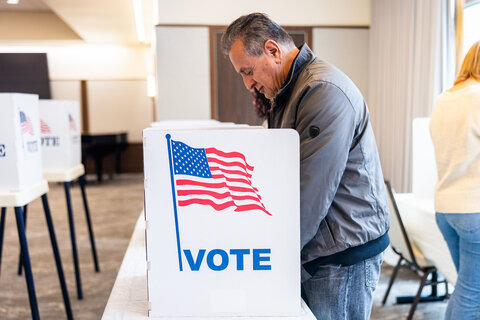
Walter Olson
Number ten in our series of occasional roundups on election law and policy:
The Federal Election Commission has long since considered and ruled on the circumstances under which entertainers’ appearances at political rallies might count as a campaign contribution, which sheds light on President Trump’s demand for an investigation of Bruce Springsteen and other celebrity Harris supporters [Bob Bauer, Executive Functions]
Some critics portray stricter deadlines on ballot receipt as motivated primarily by myths about voting fraud. Yet the move pursues goals of quintessential public interest, above all speedier ascertainment of who won, which can itself help curtail conspiracy thinking [Kansas City Star via Election Law Blog, earlier here, here, and here]
“Unduly Burdensome Public Records Requests and Their Effects on Local Election Officials” [Shelley Kimball, EVIC]
So-called sore loser laws, on the books in all but three states, are rationalized as a way to limit voter confusion, prevent spoiler candidacies, and, not least, shore up political parties. But they restrict voter choice and hobble candidates who might assemble cross-party coalitions [Eli Lehrer, R Street/The Hill]
“New Oklahoma Curriculum Requires Students To Learn 2020 Election Fraud Conspiracies” [Emma Camp, Reason; Associated Press]
Married women and birth certificates: sorting out claims about what the proposed SAVE Act on voter ID would do [Peter Gattuso, The Dispatch; earlier]





